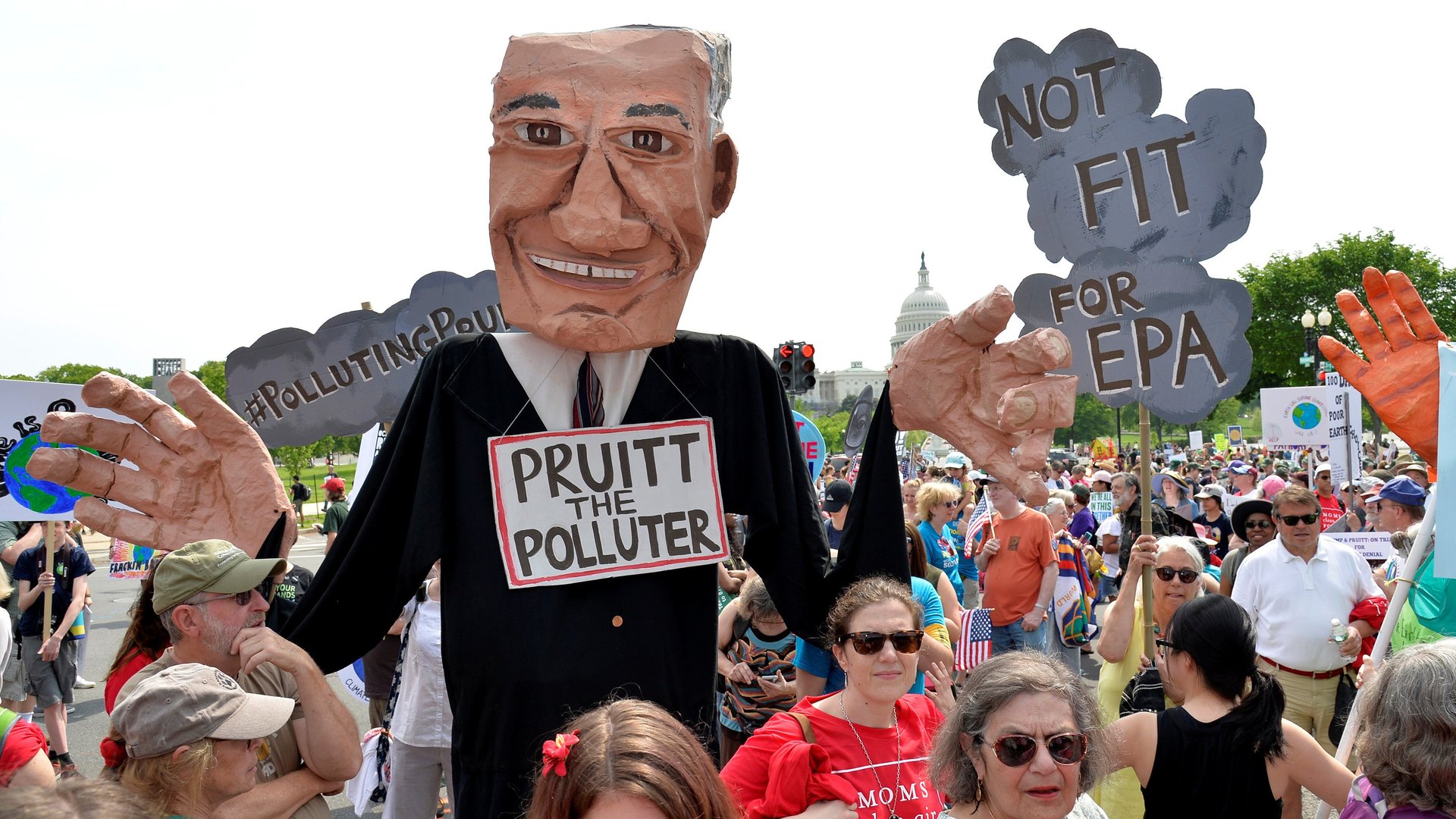The US Environmental Protection Agency is slowly turning its back on everything it was set up to protect
In a move sure to enrage environmentalists, the newly installed head of the US Environmental Protection Agency (EPA), Scott Pruitt, dismissed 12 scientists from a major scientific review board, and is looking to replace them with members who come from industries whose pollution the agency is supposed to regulate.


In a move sure to enrage environmentalists, the newly installed head of the US Environmental Protection Agency (EPA), Scott Pruitt, dismissed 12 scientists from a major scientific review board, and is looking to replace them with members who come from industries whose pollution the agency is supposed to regulate.
“The administrator believes we should have people on this board who understand the impact of regulations on the regulated community,” an agency spokesman told the New York Times (paywall).
Is this an earnest move to curtail the EPA’s overreach, as Pruitt puts it? Or is it more akin to appointing judges who were once thieves, because they better understand the impact of sentences on the sentenced community?
Consider some of the EPA’s other actions since Donald Trump became president. Days after Trump’s inauguration, EPA employees were told to stop publicizing taxpayer-funded science. After Pruitt took over, he removed “science” from the mission statement of the agency’s Office of Science and Technology. He scrubbed a climate-science site from public view after two decades of the EPA hosting it online. Pruitt also dismisses more than 100 years of science when he says that he doesn’t believe that carbon dioxide is the primary driver of global warming. As attorney general of Oklahoma, Pruitt was a fierce critic of the EPA and a reliable ally of oil companies lobbying for looser emissions rules.
“No one was fired,” an EPA spokesman said. “These folks were appointed for three-year terms, they’re not guaranteed a second three-year term.”
But that’s not how the members of the board took it. Robert Richardson, a researcher at Michigan State University and who was among those removed, told E&E News that the dismissals ”just came out of nowhere.”
The removal of scientists at the agency move comes six weeks after House Republicans approved two bills that would stifle science at the EPA. On the face of it, both the bills are aimed at increasing transparency at the agency. In practice, they would impose red tape to slow down the EPA’s work. Specifically, the EPA Science Advisory Board Reform Act was designed to prohibit EPA-funded scientists from joining the board and open it up to corporate members.
Scientific review boards are crucial to the proper functioning of the EPA. Representatives from the 18-member Board of Scientific Counselors, which now has 12 empty seats, consider vast amounts of research on topics such as methane leaks or the environmental impact of oil spills. They use their expertise to advise the EPA on how to regulate these industries. Traditionally, this and other EPA review boards have drawn their members from academia, who often face fierce political attacks as a result of their decisions.
“This is a significant step toward the erosion of science, and I think that it is happening subtly throughout the agency,” Richardson told E&E News.
The result of these dismissals may not become clear for many years. For instance, a more pliant Board of Scientific Counselors could allow Pruitt to dismiss scientists’ warnings about the use of chlorpyrifos, a pesticide linked to brain damage in infants and nervous-system damage in adults.
“I see the dismissal of the scientists from the Board of Scientific Counselors as a test balloon,” Joseph Arvai of the University of Michigan, who remains on one of the EPA’s review boards, told the New York Times. “This is clearly very political, and we should be very concerned if it goes further.”